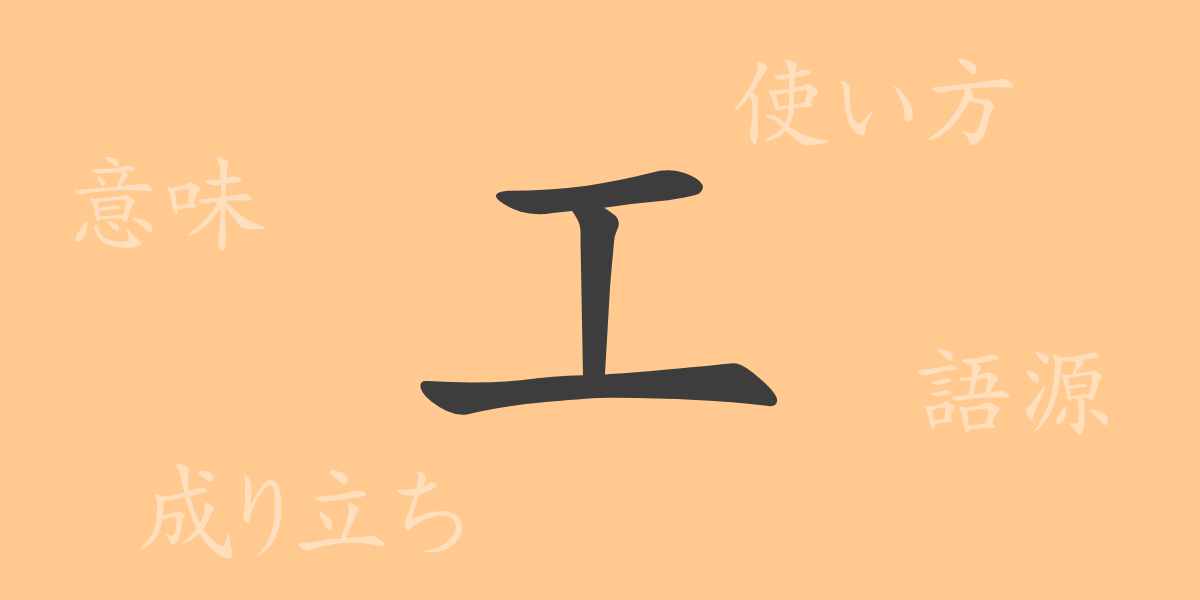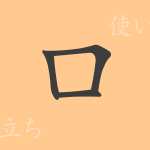The kanji characters deeply rooted in Japanese culture hold rich histories and meanings within each stroke. This time, we spotlight the frequently seen common-use kanji “工(こう)” and delve into its origins and modern usage. From industry and ingenuity to processes, let’s explore the world of “工(こう)” that is indispensable to our daily lives.
The Origins of 工 (Etymology)
The kanji “工(こう)” originated in ancient China as a symbol representing basic concepts related to labor and craftsmanship. Its shape is considered to depict tools or a place of work, illustrating the act of creating objects by hand. Over time, this character evolved to encompass not only techniques and labor but also various abstract concepts.
Meanings and Uses of 工
Initially, “工(こう)” was associated with manual labor and construction, such as handcrafting. In modern times, it is used to refer to a broader range of activities and processes through words like “工事(こうじ, construction)”, “工業(こうぎょう, industry)”, and “工程(こうてい, process)”. Additionally, it can mean ingenuity as in “工夫(くふう, creative idea)” or technical expertise as in “工学(こうがく, engineering)”.
Readings, Stroke Count, and Radical of 工
The simplicity of the kanji “工(こう)” makes it easy for beginners to learn.
- Readings: The on’yomi (音読み) is “コウ(こう)”, and there is no kun’yomi (訓読み).
- Stroke count: 3 strokes
- Radical: 工部 (たくみへん, “craftsman” radical)
Compound Words, Idioms, and Proverbs Using 工
There are numerous compound words, idioms, and proverbs that include “工(こう)”, each highlighting the richness of the Japanese language. For example, “工夫する(こうふする)” means to use one’s mind to solve problems, “工事中(こうじちゅう)” indicates that construction or repairs are ongoing, and “工学部(こうがくぶ)” refers to the engineering department of a university where technology and engineering are studied. These terms are closely related to our lives and academics.
Summary of 工
The kanji “工(こう)” holds value beyond just being a character; it is deeply intertwined with Japanese life and culture. Despite its simple shape, “工(こう)” carries diverse meanings and uses, teaching us the depth of language and the importance of knowledge and culture conveyed through words. Whenever you encounter “工(こう)” in the future, remember the history and meaning behind it, and appreciate the rich world of language it represents.

























